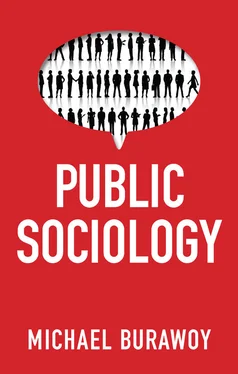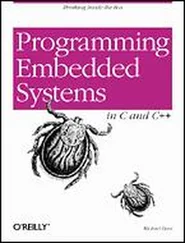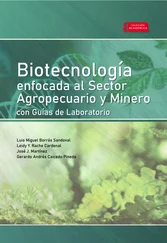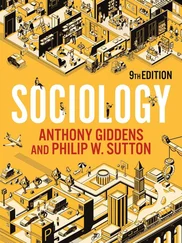Since beginning this critical memoir five years ago I have lost my close friend Erik Olin Wright. He was a constant companion in the reconstruction of Marxism, what we were to call sociological Marxism . Technically, we were sociologists, rooted in the sociology departments that recruited us in 1976 – he at the University of Wisconsin–Madison and I at the University of California, Berkeley. Undeniably our professional commitments made us sociologists, but we were Marxist sociologists committed to the advance of sociological Marxism, a Marxism that restored the social in socialism. We had set out to supplant sociology, showing that Marxist science was superior to sociology. Over time we diluted our grandiose schemes but without ever losing our commitment to Marxism.
Erik moved from a scientific Marxism focused on “class analysis” to a critical Marxism focused on “real utopias,” discovering the rudiments of socialist principles in the interstices and dynamics of capitalism. He scoured the globe for such concrete manifestations of an alternative world, collaborating with activists and practitioners to connect these different experiments and struggles. He became a public sociologist. He will, perhaps, be best remembered for his last two books, both appearing posthumously. The first is a manifesto for real utopias, How To Be an Anticapitalist in the 21st Century (2019) – a popular version of his magnum opus, Envisioning Real Utopias (2010). The manifesto was instantly translated into thirteen languages, a reflection of his enormous influence not just in academia but among activists fighting for a better world. The second book, Stardust to Stardust (2020), is an extraordinary daily journal of reflections on living and dying. It begins in April 2018 when Erik was diagnosed with acute myeloid leukemia, and ends nine months later with his death. Always one to live for the future, Erik showed us how to sustain optimism in the face of both personal and human extinctions. The book radiates utopianism not just in theory but also in practice: it relates how he turned life around him – family, neighborhood, school, department, and hospital – into a real utopia. His spirit guides this memoir, continuing the explorations that we began together – the tensions between utopia and anti-utopia.
Although I have acknowledged my teachers many times before, I would be remiss if I did not acknowledge them once again. In their different ways Jaap van Velsen, who died in 1990, Adam Przeworski, and Bill Wilson made indelible imprints on me and my intellectual outlook. But I have had so many other teachers, too. My friends from South Africa, especially Eddie Webster, Luli Callinicos, and Harold Wolpe, who died in 1996, continually reminded me that another world exists, one of hope and struggle. My Hungarian and Russian escapades would not have been possible were it not for friends, colleagues, and collaborators, especially Iván Szelényi, János Lukács, Zsuzsa Hunyadi, Pavel Krotov, Tatyana Lytkina, Svetlana Yaroshenko, Volodya Ilyin, and Marina Ilyina, who inducted me into the byzantine world of socialism and postsocialism. Elsewhere, thanks to Shen Yuan who guided me through China, to Ruy Braga for introducing me to Brazil, to Nazanin Shahrokni for giving me an unforgettable glimpse of Iran, to Sari Hanafi who showed me so many different sides of Lebanon, Jordan, and Palestine, and to Mona Abaza for walking me through Cairo’s urban life during and after the Arab Spring. In England and in Wales, Huw Beynon has been a close friend, ever since we met to discuss industrial ethnography in a dark Chicago bar in 1975. I’m grateful to so many others in so many countries who have helped me understand how sociology contributes to making a better world.
The influence of students, both undergraduates and graduate students, has been deep, incalculable, and irreversible, not just in educating me but in making me, as I like to think, a better person. One former student, Laleh Behbehanian, now a brilliant teacher in Berkeley’s sociology department, became the driving force behind this project. She became my coach. Her enthusiasm helped to dilute my skepticism concerning the value of my sociological account of my sociological life. She read the manuscript three times; each time her detailed comments sent me scurrying back to revise the manuscript. I was getting a dose of my own medicine. After the fourth iteration I couldn’t bear to give it to her again. Enough already!
Besides, I was exhausting the patience of my editor at Polity, Pascal Porcheron, who had first approached me to write a short introduction to sociology. I originally agreed in the hope that I could write something for the undergraduates I had been teaching for 40 years. I owed them so much. It soon became apparent I was incapable of such an introduction. Instead I developed a reflection on my own trajectory through the four sociologies I had elaborated as president of the American Sociological Association in 2004 – the matrix of policy, public, critical, and professional sociologists. Unhappy with the drafts I sent him, I would have junked the whole enterprise were it not for the generous comments of two anonymous reviewers, as well as encouraging suggestions from Pascal himself who read it not once but twice. They had found value in my reflections, so I continued in what seemed to me a Sisyphean task. I also benefited from the suggestions of Chris Muller on Chapter 10and of Chris Newfield on Chapter 15. With Tyler Leeds’s meticulous corrections and pointed suggestions, I was able to push the manuscript over the hill and into the abyss below. Ann Klefstad’s careful editing delivered the final touch.
William Faulkner famously wrote, “The past is never dead. It’s not even past,” yet still the past is understood differently with time. Even in the last five years my views have evolved in unexpected ways. It could not be otherwise as I struggled to complete this little book in the midst of COVID-19 – a mounting health and economic crisis – not to mention police atrocities, insurgent movements on left and right, and Trumpian megalomania. From the perspective of Oakland, California, it looks like the planet will never be the same again. The pandemic has exposed the deepening inequalities and suffering that sociologists have been studying for decades. But COVID-19 has not just exposed those inequalities, it has amplified them. This should be a time when sociology comes into its own, as the crisis compels everyone to adopt a sociological vision; sociology shows us how capitalism can be defenseless against the accumulating crises it nurtures. But the state response, the social protest against anti-Black policing, the successful struggle against Trumpism, and the strategies of human coping have opened up new possibilities, new imaginations of what the world could be like, should be like, has to be like, if it is to contain global pandemics, climate change, and racial injustice. Sociology’s utopian mission remains making those possibilities real, an endeavour that also depends on recognizing what an uphill struggle that will be. But, as Erik Wright used to say, optimistically, “Where there’s a way there’s a will.”
Introduction The Promise of Sociology
It was 1967. I was sitting in Christ’s College Library, very depressed. I was a grammar school boy who didn’t belong in such a citadel of learning. I resented Cambridge – its spires and its gardens, its rituals and its gowns, its dons and its curfews, all things passed down from time immemorial. I resented the mathematics I was there to study, so removed from the world beyond. The place, the subject, the atmosphere all seemed so irrelevant, so meaningless.
And there on the desk, next to me, appeared a book called Suicide . That must be for me, I thought – a recipe for a way out of my misery. I picked it up and started reading. It was a strange tome written by some Frenchman called Émile Durkheim. As far as I could tell this turgid text made an astonishing claim: suicide – that most individual of acts, committed in a state of desperation – was a product of something beyond the individual, namely, the social relations one inhabits.
Читать дальше












